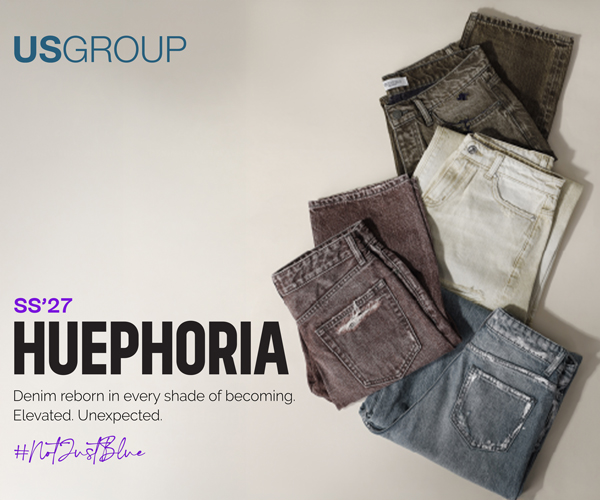Romans empire

Tilmann Wröbel visits 1083, a French brand and manufacturer that is among a growing number of companies showing that, with a little determination, supply chains can be established and textiles jobs created domestically.
Once upon a time, jeans were made and manufactured in France. We all know the stories about denim beginning in Nimes and the South of France... and then, this incredible weaving and manufacturing know-how left the country. But history seems to be weaving a new path now Thomas Huriez has entered the denim industry.
The “denim made locally” movement has given birth to locally manufactured jeans in many European countries. Besides Italy – where denim fabrication and jeans manufacturing never really stopped – brands and workshops such as Blackhorse Lane Ateliers and Hiut, both from the UK, Atelier Tuffery and Kiplay from France or Braves & Company from Germany are great examples of fantastic denim “made just around the corner”.
All these companies have one thing in common: the desire to make extremely beautiful jeans. Thomas Huriez decided to create a brand-factory-mill, to slow down the global consumption of jeans while creating labour for textile workers in France, in his hometown Romans-sur-Isère. The city was formerly famous for shoe manufacturing but this was more or less abandoned when international outsourcing became the standard in France.
Starting to manufacture denim in a country, in a city, where no textiles have been sewn for a while is not an easy endeavour. You have to find and train your workers first. And that is the point: it’s not just about the product, but the labour and the local sourcing that matters. Sometimes Thomas reminds me he is conscious his jeans are not perfect – yet – but it’s all about re-establishing a know-how to bring back work to his country; to create a community of denim workers who are gaining greater expertise every day.
Short supply chain
It was in 2007 when Thomas, a former IT specialist, opened a store in Romans retailing exclusively ethical clothing. He started thinking about the best category of clothing that would be durable, with classic timeless designs, that he could manufacture in his city in a totally transparent, ethical and eco-friendly way, and then sell it in his store. And denim it was.
The brand, which he launched with his brother Gregoire, is called 1083. The number stands for the length of France at its widest point, the idea being that no ingredient of the jeans shall have more than 1,083km to travel – cotton, ginning, weaving, trims and manufacturing – creating textile jobs in France.
When he established 1083 in 2013, he soon realised that nothing was easily available and that he would have to relocate the entire value chain to his country. Not afraid of this, he simply called his project ‘Re-Made in France’.
Over the next few years, he set up small factories in and around the city of Romans, creating employment for 150 textiles workers. He organised training sessions in which experienced textile professionals shared their knowledge and taught staff how to operate sewing machines. Since all fabrics for jeans start with cotton, Thomas decided to import exclusively Global Organic Textile Standard (GOTS) certified cotton, to gin his own yarn and weave his own fabrics, first in two separate French partner mills, then in 2018, the company acquired one them and named it Tissage de France. Now the brand was able to develop its own fabrics on its own weaving machines.
Along with the mill, another 40 workers joined the team. With a strong focus on eco-responsibility, recycling and cradle-to-cradle methods, some of the cotton is recycled from worn jeans. The Infinity Jeans collection was created by charging a small deposit, and recycling 1083 jeans into a second or third life.
Positive thinking
Today, 1083 has a core denim offer of about 40 styles, for men, women and children. It makes 80% of its turnover in France, and if export volumes ever rise, Thomas told me, he would prefer developing more 1083s in selected countries, creating jobs in each new country, rather than building an export shipment strategy from his headquarters to long-haul destinations.
What strikes me most, each time I am in the 1083 factories or offices, is this very young, very positive mood. The way the team works as a strong group, trying to keep everything as simple as possible. Slow, and as quality driven as possible.
Behind the red logos, the red sewing machines and Thomas’s eternal red T-shirt, 1083 is more than a factory or a brand, it’s a state of mind. And when talking with friends who wear these 1083 jeans, I can confirm that the Re-Made in France message behind it is understood by the final consumer. Even more, it has become a statement. A calm, humble and strong statement, in a noisy fashion industry.
Needlework in one of the 1083 factories.
Photo: Tilmann Wröbel













